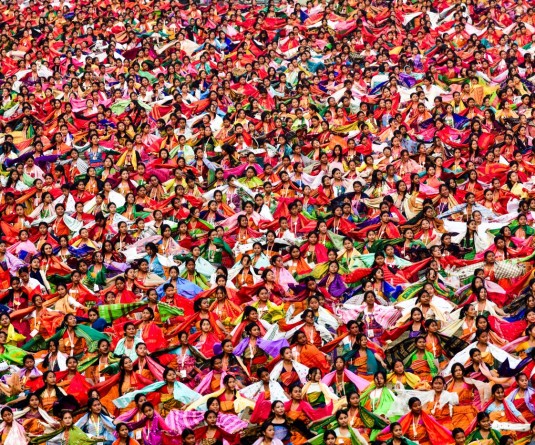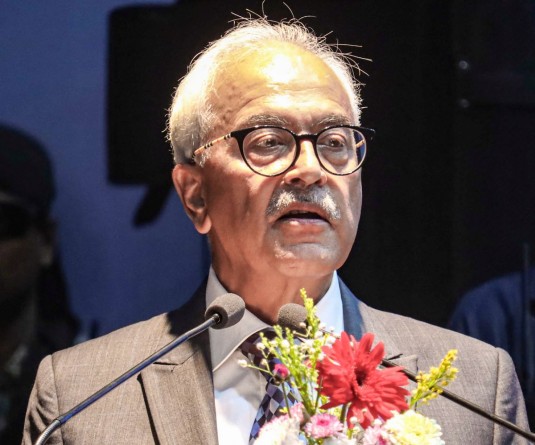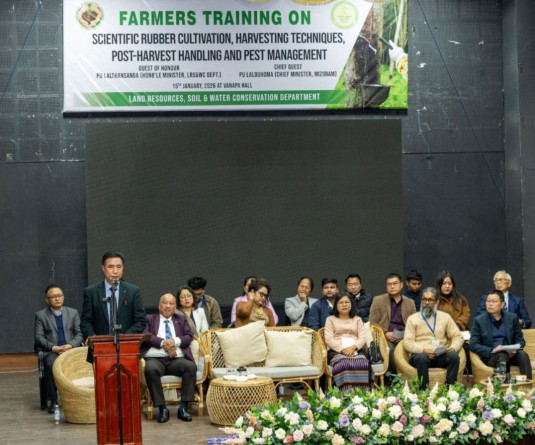
SENAPATI, December 18 (TNN): Francis Philip (name changed on request) is certain one of his customers died of tuberculosis. During the economic blockade in Manipur that was lifted at the beginning of this month, this Kangpokpi-based pharmacist faced a shortage of drugs. Clients would come back regularly to ask if he had been able to procure something through the black market. One TB patient abruptly stopped coming. "He was a poor man. He wouldn't have gone out of the state for treatment. I'm quite sure he died," says Philip.
In recent months, Manipur has been subjected to two consecutive economic blockades. Once by the Kuki group, Sadar Hills District Development Committee, who are demanding that Sadar Hills be carved out as a separate district within Manipur from the larger Senapati district for administrative purposes. After nearly a 100 days of food, medicines and other supplies being stopped, the blockade was called off following an 'assurance' from the state government. But the United Naga Council (UNC)-that has been demanding an "alternative arrangement" for Nagas in Manipur - wasn't happy with the SHDDC's proposal. Saying that the new Sadar Hills district will have a Kuki majority and will undermine the Nagas, they protested with another blockade that lasted 121 days. Trucks carrying food and fuel supplies were stopped, and even burnt on the Imphal-Silchar and Imphal-Dimapur highway. The blockade was "temporarily" lifted on Nov 28. But the political groups continue to fight it out.
Philip isn't impressed with the politics of blockades. "Having another district would definitely work better. But these blockades have to stop. I had to shut shop for two whole months," he laments. Bhanu Prasad, who runs a general store in Kangpokpi- the proposed site for the Sadar Hills district headquarter- has been paying off three groups annually in exchange for "protection", another name for extortion. He supports three children and a wife. Thanks to the blockade, he incurred a loss of more than Rs 40,000 last month. The lifting of the blockade hasn't brought any hope. Kangpokpi resident Longtila, who sells vegetables for a living says, "We don't know when but another blockade will happen."
Both the SHDDC and the UNC have a consensus on the method of protest. "This is the only way to get the state and central governments to listen," says Ngamkhaohao Haokip, president of the SHDDC, all the while insisting that tribal people store food for long periods of time and wouldn't be affected.
In recent months, Manipur has been subjected to two consecutive economic blockades. Once by the Kuki group, Sadar Hills District Development Committee, who are demanding that Sadar Hills be carved out as a separate district within Manipur from the larger Senapati district for administrative purposes. After nearly a 100 days of food, medicines and other supplies being stopped, the blockade was called off following an 'assurance' from the state government. But the United Naga Council (UNC)-that has been demanding an "alternative arrangement" for Nagas in Manipur - wasn't happy with the SHDDC's proposal. Saying that the new Sadar Hills district will have a Kuki majority and will undermine the Nagas, they protested with another blockade that lasted 121 days. Trucks carrying food and fuel supplies were stopped, and even burnt on the Imphal-Silchar and Imphal-Dimapur highway. The blockade was "temporarily" lifted on Nov 28. But the political groups continue to fight it out.
Philip isn't impressed with the politics of blockades. "Having another district would definitely work better. But these blockades have to stop. I had to shut shop for two whole months," he laments. Bhanu Prasad, who runs a general store in Kangpokpi- the proposed site for the Sadar Hills district headquarter- has been paying off three groups annually in exchange for "protection", another name for extortion. He supports three children and a wife. Thanks to the blockade, he incurred a loss of more than Rs 40,000 last month. The lifting of the blockade hasn't brought any hope. Kangpokpi resident Longtila, who sells vegetables for a living says, "We don't know when but another blockade will happen."
Both the SHDDC and the UNC have a consensus on the method of protest. "This is the only way to get the state and central governments to listen," says Ngamkhaohao Haokip, president of the SHDDC, all the while insisting that tribal people store food for long periods of time and wouldn't be affected.






